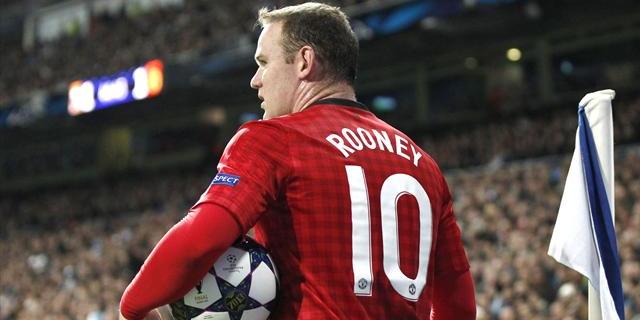Wayne Rooney undoubtedly stands out as one of the best English players of his generation. He has been England’s best forward for the past ten years or so and is truly a “world class” player in his own right.
At 28, he has played over 600 games for both club and country and has scored over 260 goals in his career. He is only 33 goals shy of becoming all-time leading scorer at Manchester United, while he has won five Premier League titles, three FA Cups and a Champions League’s medal with the Old Trafford club.
Having achieved so much success in his glittering career so far, many are harbouring this doubt now: have we already seen the best of Wayne Rooney?
Sky Sports pundit Jamie Carragher feels that probably we’re in a position to say ‘yes’ to that question. Usually the 27-31 years phase is widely regarded as the peak time for any footballer. During this period, in most cases, players perform at their highest level with supreme consistency than ever.
“Yet Wayne is different. Making his debut in the Barclays Premier League at 16 confirmed him as exceptional but it also meant there was potential for him to peak early”, wrote Carragher in his column for Daily Mail.
He added: “Competing at the highest level for the past 12 years, with all the pressure and intensity that accompanies it, leaves a mark.
“Can you imagine, from the age of 18, having to carry the burden of being the man for club and country?”
Carragher has drawn the comparison with Robbie Fowler saying that like Rooney, the England forward started his career at an early age of 19 and within next three-four years went on to become Liverpool’s best striker, but by the time he reached 26, he was a spent force and no longer treated as the first choice at Anfield.
Former Manchester United manager David Moyes has refuted such notions and claims that Rooney is still one of the very best in the Premier League.
“Some people might wonder if we have seen the best of him. I don’t. I still believe he is one of the best in the Premier League,” said Moyes.
“There will always be young players pushing hard for his place but right now I don’t believe there is anyone who can dislodge him for club and country.
“In time, I can see him moving further back on the pitch and becoming a midfielder, and a good one at that.
“He has a great range of passing and understanding of the game, someone who can play in any position. He was even pretty good in goal! But he still has that instinct as a striker.”
First of all, it is unclear what Carragher tried to imply by saying Rooney had past his best: have we seen the best of Rooney “as a striker” or “as a complete footballer?”
Yes, there is a subtle difference. Rooney plays as a forward no doubt, but he has hardly been used as a no 9 for his club throughout his career. In 2009-10, he played the entire season as a lone striker and ended up with 34 goals for the club. Also, in 2011-12, he mostly played upfront on his own and finished the season with 34 goals again.
However, Rooney is versatile, modern and a complete forward. He is the central creative fulcrum of Manchester United and brings lot more to the game than just simply scoring goals. Probably a reason why apart from those two seasons Rooney has never scored over 25 goals in a season again. So, judging Rooney based on his goal scoring prowess only won’t present the whole picture.
The comparison with Robbie Fowler also isn’t apt here. With due respect to the Liverpool legend, his was a case of being unable to cope up with the changing evolution of football and not suffering from the burden of pressure as cited by Carragher. Fowler was a typical old-school poacher – the role which was very popular in the early & mid 90’s and of course way before that.
The rise of Michael Owen, another poacher type striker made life difficult for Fowler especially post 2000, as then Liverpool managers (as well as England managers) found hard to take the risk of playing with two similar strikers. A reason why Emile Heskey, who with his physical presence and strong hold-up play gave Liverpool attack a different dimension was preferred to partner Owen, despite him being nowhere near to the class and quality of Fowler.
Rooney is a complete modern footballer and has shown great qualities of adaptability throughout his career. Be it as a flexible forward in Sir Alex Ferguson’s 4-3-3 system alongside Ronaldo and Tevez, swapping positions with Steven Gerrard in Fabio Capello’s system or dropping deep as a central midfielder – Rooney has shown great tactical awareness hardly found in any other contemporary English striker. Should Rooney continue to perform at this level for the next three to four years, it will be ludicrous to say that he had past his best.
People still remember that raw, fearless and boisterous Wayne Rooney of Euro 2004, while talking about his major contributions. But one should understand at the same time that every “world class” player goes through a process of natural change as they mature with passing years and Rooney is no exception to that rule.
Add Sportslens to your Google News Feed!
